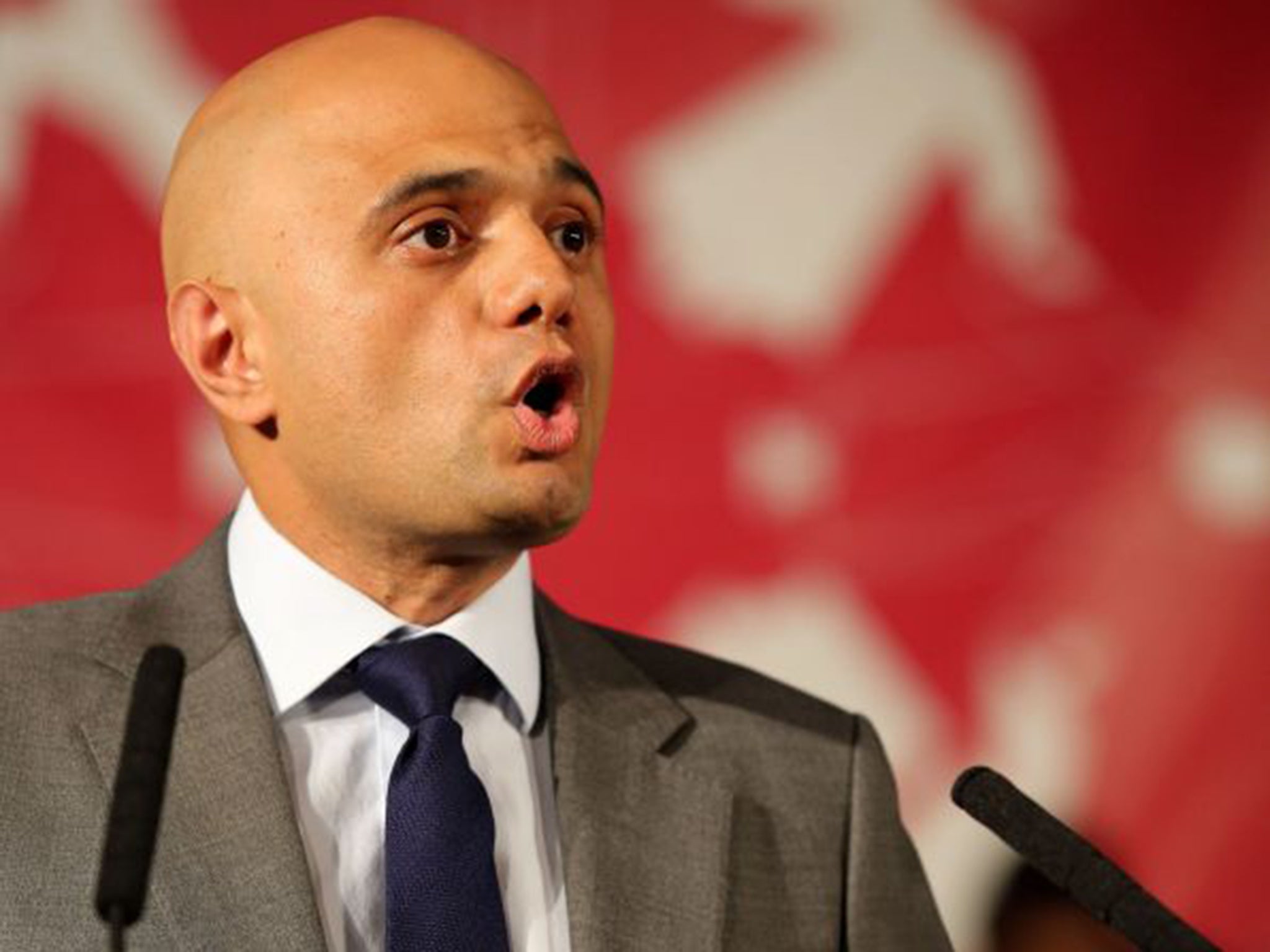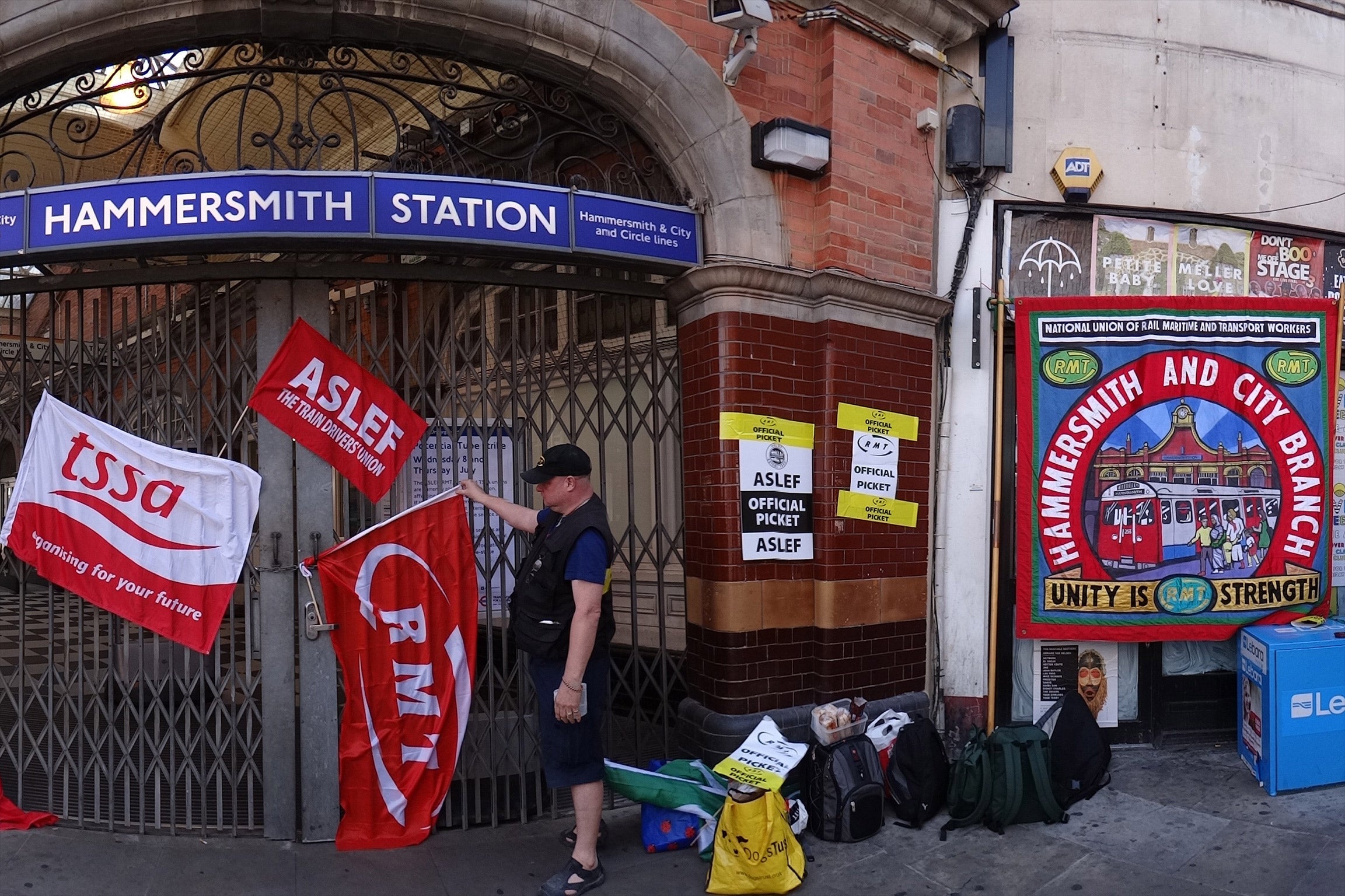Trade Union Bill: Sajid Javid would have failed to be elected under his own strike law reforms
Under Sajid Javid's plans, workers in key public sectors will be banned from striking unless they are backed by more than 40 per cent of balloted members

Your support helps us to tell the story
From reproductive rights to climate change to Big Tech, The Independent is on the ground when the story is developing. Whether it's investigating the financials of Elon Musk's pro-Trump PAC or producing our latest documentary, 'The A Word', which shines a light on the American women fighting for reproductive rights, we know how important it is to parse out the facts from the messaging.
At such a critical moment in US history, we need reporters on the ground. Your donation allows us to keep sending journalists to speak to both sides of the story.
The Independent is trusted by Americans across the entire political spectrum. And unlike many other quality news outlets, we choose not to lock Americans out of our reporting and analysis with paywalls. We believe quality journalism should be available to everyone, paid for by those who can afford it.
Your support makes all the difference.The government minister in charge of drawing up strict new laws on strike action would not have been elected if the same rules applied to him.
Sajid Javid, the business secretary, has unveiled plans to ban strikes by key public sector workers unless they are supported by at least 40 per cent of all of those eligible to vote.
But taking a look at the results of his own Bromsgrove constituency in May's general election reveals that he himself was supported by just 38.3 per cent of the 74,000 people eligible to vote in his seat.
So Mr Javid, like the vast majority of the Tory MPs who are backing the crackdown on trade union industrial action, would have failed to be elected if the rules he is applying to key public sector workers applied to him.
The strict new laws, which could come into force as early as next year if approved by MPs in the autumn, will cover key public sector workers such as nurses, teachers, fire fighters, train drivers and Border Staff.

Meanwhile in other sectors that are not deemed as vital public services, strike action will be curtailed with a new 50 per cent turnout threshold for industrial action to be legal. There are even some MPs who would fail to reach this criteria if it was applied to parliamentary elections, including Tristram Hunt, the shadow education secretary, whose Stoke-on-Trent Central seat saw a turnout of just 49.9 per cent.
If the proposed changes had been in place before last week's London Underground strike, which caused widespread chaos across the capital, two of the four unions on strike would not have reached the threshold and would have been banned from going ahead with industrial action. Transport for London said it could have put on a limited service if this had been the case.
Similar moves to clamp down on strike action was proposed by the Tories in the last government but the Liberal Democrats blocked the plans.
Join our commenting forum
Join thought-provoking conversations, follow other Independent readers and see their replies
Comments